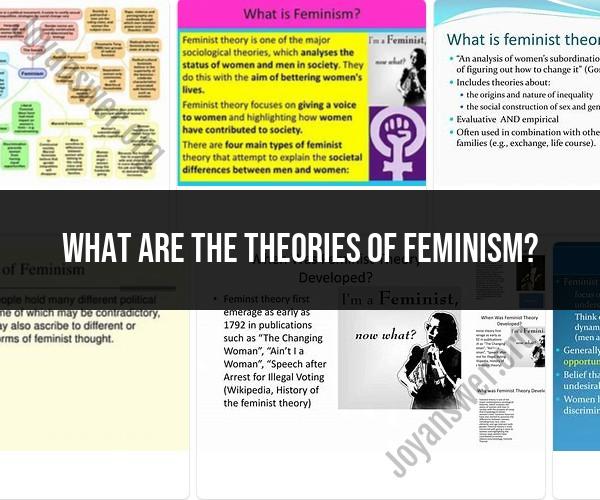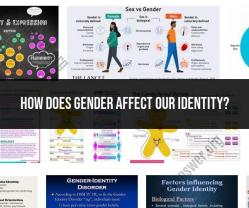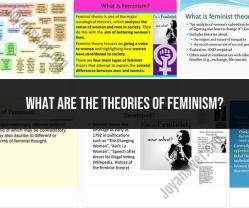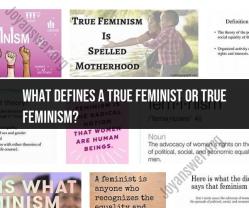What are the theories of feminism?
Feminism encompasses a wide range of theories and perspectives, reflecting the diversity of thought within the feminist movement. Here are some of the major theories of feminism:
Liberal Feminism: Liberal feminism is one of the earliest forms of feminism and focuses on achieving gender equality through changes in laws, policies, and institutions. It advocates for equal rights and opportunities for women in areas such as education, employment, and politics. Liberal feminists believe that gender inequality can be addressed through legal and political reforms.
Radical Feminism: Radical feminism views patriarchy (male domination) as the root cause of gender inequality and seeks to dismantle it. It emphasizes the need for a complete restructuring of society and challenges traditional gender roles. Radical feminists often focus on issues like reproductive rights, sexual violence, and women's autonomy.
Marxist Feminism: Marxist feminism combines Marxist and feminist theories to analyze the intersection of class and gender. It argues that capitalism perpetuates gender inequality and that women's oppression is linked to economic exploitation. Marxist feminists advocate for both gender and economic equality.
Black Feminism: Black feminism, also known as womanism, specifically addresses the unique experiences of Black women and women of color. It highlights the intersectionality of race, gender, and class, recognizing that these factors intersect to create distinct forms of oppression. Prominent Black feminists include bell hooks, Audre Lorde, and Kimberlé Crenshaw.
Intersectional Feminism: Intersectional feminism builds on the idea that individuals may experience multiple forms of oppression simultaneously, such as racism, sexism, homophobia, and more. It seeks to address the complex interplay of these factors and advocates for inclusive and equitable feminism that doesn't prioritize one group's issues over another's.
Postcolonial Feminism: Postcolonial feminism examines how colonialism and imperialism have contributed to gender-based oppression in colonized regions. It critiques the impact of Western feminism on non-Western cultures and advocates for decolonization and the inclusion of diverse voices.
Queer Feminism: Queer feminism challenges traditional notions of gender and sexuality. It advocates for the rights and recognition of LGBTQ+ individuals and explores the ways in which heteronormativity and cisnormativity contribute to inequality.
Cultural Feminism: Cultural feminism emphasizes the value of qualities traditionally associated with femininity, such as nurturing and cooperation. It argues that these qualities should be celebrated and integrated into society to create a more compassionate and peaceful world.
Ecofeminism: Ecofeminism explores the connections between the oppression of women and the degradation of the environment. It suggests that both women and nature have been historically exploited and dominated by patriarchal systems.
Materialist Feminism: Materialist feminism, influenced by Marxism, focuses on the economic and material aspects of gender inequality. It examines how economic systems and structures contribute to the subordination of women.
Psychoanalytic Feminism: Psychoanalytic feminists draw from psychological theories, particularly those of Sigmund Freud, to analyze how cultural norms and stereotypes influence gender identity and behavior. They explore the impact of the patriarchy on individuals' psyche.
Transfeminism: Transfeminism focuses on the intersection of transgender issues and feminism. It advocates for the inclusion of transgender and gender-nonconforming individuals in feminist discussions and actions.
These are just a few of the many feminist theories and perspectives. It's important to note that these theories are not mutually exclusive, and many feminists draw from multiple theories to address the complex and multifaceted nature of gender inequality. Feminism continues to evolve and adapt to address new challenges and contexts.




